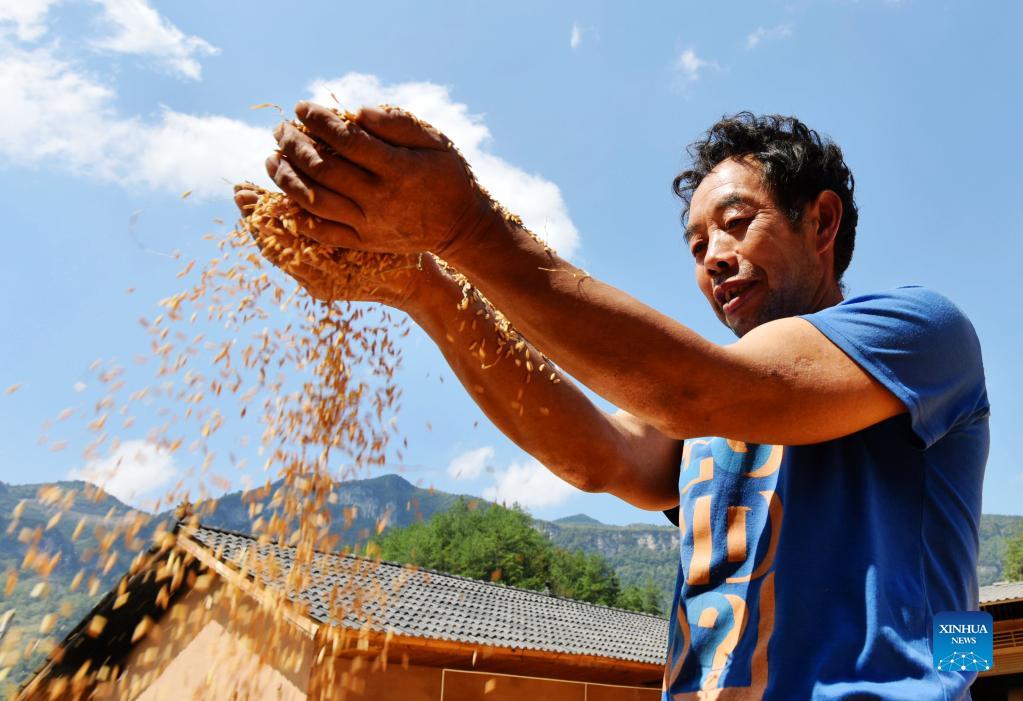Chongqing: The Hollywood of western China
By Hu Xingyu | chinadaily.com.cn | Updated: 2021-11-29 15:07

Chongqing is the best place for making a movie. I recently watched the flick The Hero of Hotpot which takes place in the air-raid shelter that transforms into a hot pot restaurant. The air-raid shelter is used to protect the people of Chongqing during the War of Resistance Against Japanese Aggression (1931-45). However, in the peaceful era, it sheds its mission and integrates with the modern city. The dark atmosphere of the air-raid shelter and the special terrain make the film's gunfight and fight scenes more dramatic.
The climax of the movie builds a sensitive portrait of the small alleys in Chongqing: messy and crowded, the corners of life occupying the public space lazily. The high and low steps seem to be rebellious, deliberately making things difficult for the protagonist. The film makes full use of the complex mountainous terrain of Chongqing and captures a beautiful scenery that is completely different from other cities.
Chongqing is a favorite film location. Different types of movie projects have been shot here. The famous ones include Crazy Stone, which won the 43rd Golden Horse Award, I Belong To You, Chongqing Hotpot, (NOTE: Is this the title or 'The Hero of Hotpot' as mentioned above?) and Better Days which has been nominated for the Oscars for Best International Feature Film. Chongqing is every filmmaker's dream, and provides shooting support for nearly 50 films every year.
So why is Chongqing suitable for making movies? In the 1940s, John King Fairbank of Harvard University commented that Chongqing was "an extremely unfortunate place for the livelihood of people with a very complex mountainous terrain." Indeed, Chongqing has been known for its poor transportation as it is separated by the Yangtze River and rolling hills. Limited communication with the outside world has been a major hurdle in the modernization of Chongqing. In the face of a wasteland, Chongqing natives not only did not leave their hometown, but responded to the call for development. They built Chongqing into a multi-dimensional city with a lot of charm.
In Chongqing, there are many large interchanges, tube towers, air-raid shelters, and light rails across mountain tunnels, rivers,and even through buildings! Those constructions which look like various mazes seem to trap people deliberately. This multi-dimensional terrain contributes to the magical atmosphere of a film. Chongqing is also a place that blends traditional buildings with modern architecture. This land is densely packed with office buildings and old residential areas. When the sky turns dark, every building emits bright lights in which the story hides. In the conflict between modernity and tradition, in the dense urban living environment, there will always be friction between each story, thus inspiring filmmaking.
Meanwhile, the people of Chongqing are brave, easy-going, kind and hardworking. The city bursts with infinite vitality and allow filmmakers to express their creativity and imagination.
On October 24, the 8th Chongqing Youth Film Festival officially opened. The epidemic did not stop filmmakers from expressing their artistic creation. The film festival not only encouraged Chinese filmmakers to tell their stories but promoted the exposure to different cultures. This year, the Chongqing Youth Film Festival opened a special exhibition named "Latin American Essence" which screened nine outstanding films from four countries namely Brazil, Colombia, Mexico and Uruguay. Filmmaking is an effective way to strengthen cultural exchanges and promote friendships.
The author is a student at Sichuan International Studies University.
























